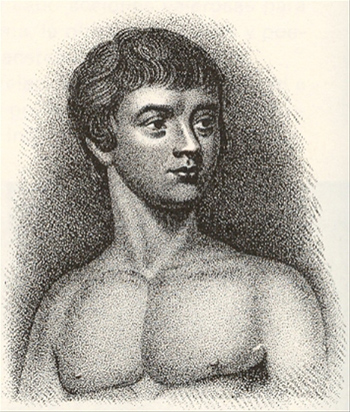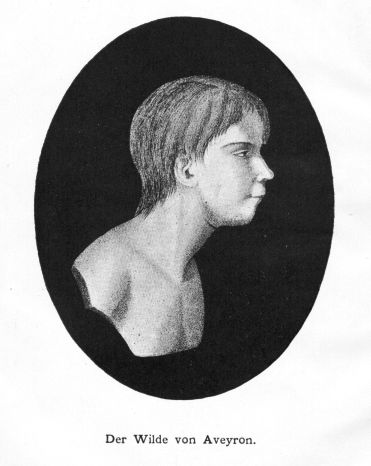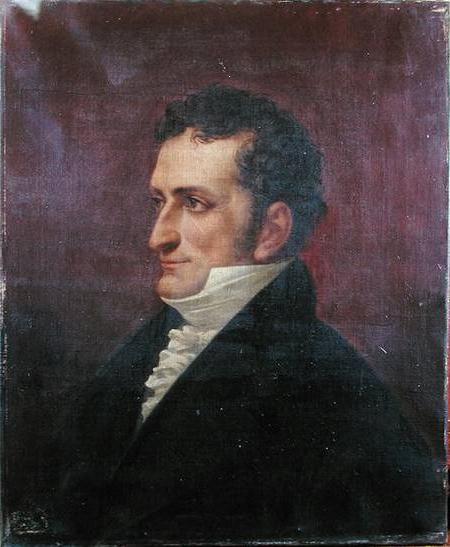“Feral child” is a term used to describe youngsters who grew up isolated from human communities and have never been accustomed to fundamental conventions such as language, education and rules for socially acceptable behavior. Throughout history, cases of feral children have been documented. In many such instances, the children were raised by wild animals, people believed. However, in recent times, the authenticity of many of these cases has been challenged.
Stories of feral children appear in folklore and fiction. In 1894, Rudyard Kipling published a famous collection of stories named The Jungle Book. It follows the adventures of Mowgli, a feral child raised by wolves who learns the languages of various wild animals and establishes personal connections with them. By the end, Mowgli learns to abide by conventions and becomes a functioning member of civilized society. The Jungle Book popularized the motif of feral children in literature and pop culture, and Mowgli became a beloved children’s character known for his compassion, kindness, and adaptiveness.
In reality, “feral children” rarely integrated fully into society. The lack of proper care, emotional stimulation, and education hindered their social progress and delayed their mental development. Feral children often became the subjects of scientific studies and debates that stigmatized them and turned them into lab subjects, used to prove scientific theories.

Such was the case of Victor of Aveyron, a French feral boy who lived in the woods of the Aveyron region in the late 1790s and was allegedly raised by wolves. Victor had reportedly been sighted by local villagers as early as 1794, and in 1797, he was caught by local hunters and brought to a town. A young widow cared for him there for several months, but he managed to escape and return to the woods. He voluntarily emerged from the woods in 1800.
The boy was then around 12 years old and couldn’t speak any language. The physicians who first examined him thought that he might have been deaf and mute. After he was examined at the National Institute of the Deaf in Paris, it was determined that he was completely healthy but had never come into contact with any language. He was comfortable being naked and had no problem with roaming around in cold weather, which led the researchers of the time to conclude that he was well accustomed to the harsh conditions of the wilderness.

When Victor of Aveyron was found, the Enlightenment movement was in full swing; many prominent scientists of the time believed that the ability to learn and abide by conventions is the only feature which differentiates humans from animals. Several researchers, including a famous instructor of the deaf named Roch-Ambroise Cucurron Sicard, attempted to teach Victor French and the basics of communication to prove that the development of one’s language and social abilities depends on one’s surroundings.
Although Victor showed some signs of progress, he was aggressive, hyperactive, and uninterested in learning. This eventually led researchers to the conclusion that he would never be able to adapt to any social convention, so they mostly gave up on his future. He was left to roam the corridors of the National Institute of the Deaf and become a kind of local attraction.
Fortunately, he was adopted by a medical student named Jean Marc Gaspard Itard, who arranged for him to move into his own home. Itard was the one who gave him the name “Victor”; up to that point, he was known only as the “Wolf Child.” Under Itard’s close supervision, Victor managed to learn several phrases and accept some social conventions, but never became a fully functional member of society. Still, he received proper care and led a peaceful life until 1828, when he died of pneumonia at an estimated age of 40.

Although Itard failed in his efforts to educate Victor, he is praised for founding an oral education program for the deaf and introducing new methods of pedagogy that include the use of behavior modification with severely impaired children.
Related story from us: Child soldiers of the American Civil War
In the last 50 years, while Victor’s life has been adapted several time for fiction or the big screen, such as in Francois Truffaut’s The Wild Boy, some academic researchers have speculated that very few genuine “feral children” existed, and that instead these children were probably abandoned by their families a short time before being found, or had severe disabilities. In some cases, the children being raised by animals were hoaxes perpetrated by the public. One professor wrote that Victor probably had a case of severe autism, rather than showing the effects of being raised by wolves.
